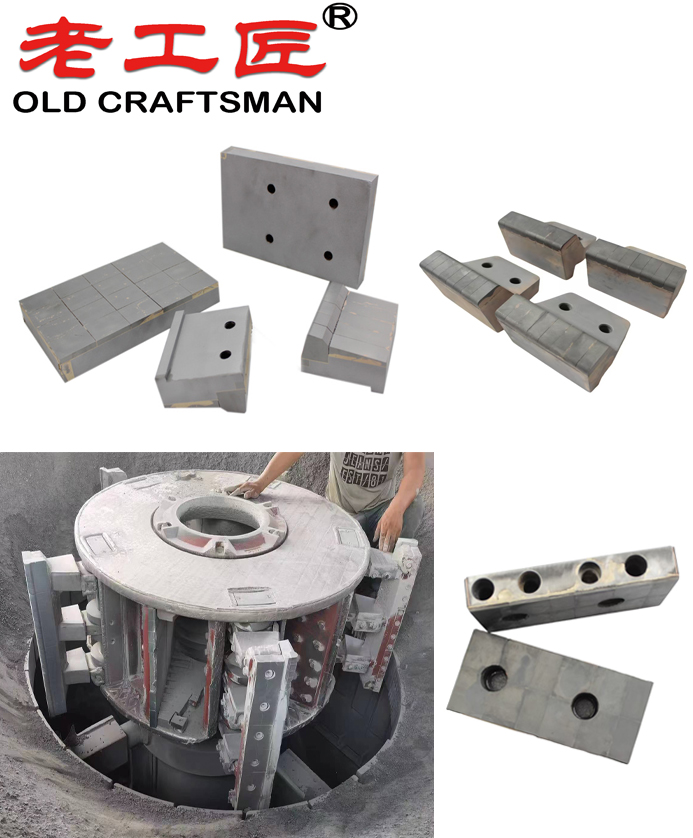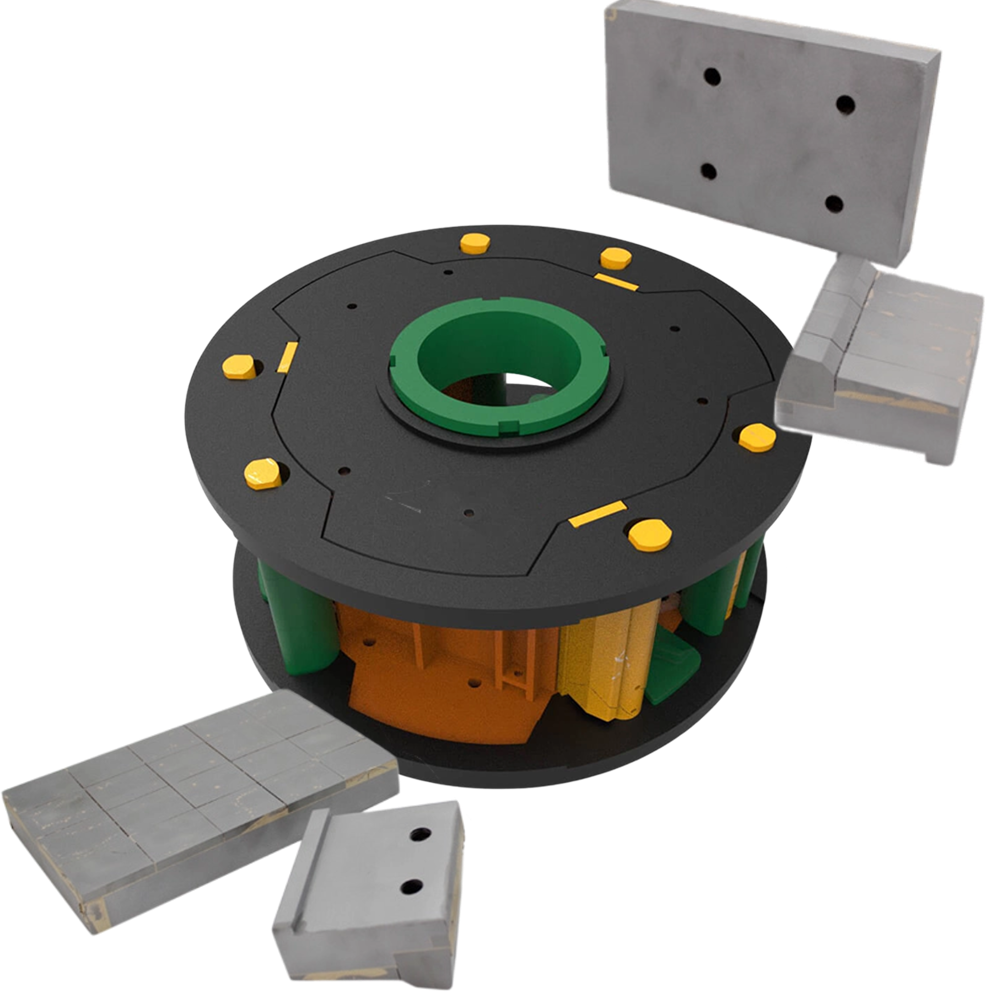A crusher hammer made of tungsten carbide offers several advantages over an ordinary crusher hammer, typically made from materials like high manganese steel or other conventional alloys. Below is an analysis of the key benefits based on material properties and performance in crushing applications:

- Enhanced Wear Resistance
Tungsten carbide, often referring to tungsten carbide or similar compounds, is significantly harder and more wear-resistant than the materials used in ordinary crusher hammers, such as high manganese steel. This superior hardness allows carbide hammers to withstand abrasive wear from tough materials like granite, quartz, or other hard ores for a much longer time. Ordinary hammers tend to wear out quickly under such conditions, requiring frequent replacements, whereas carbide hammers maintain their integrity and shape, extending their service life. - Improved Durability and Longevity
Due to its exceptional toughness and resistance to deformation, a carbide crusher hammer can endure high-impact forces without cracking or breaking as easily as ordinary hammers. Ordinary hammers, while tough, often experience surface wear or work hardening that eventually leads to failure. The durability of carbide reduces downtime for maintenance and replacement, making it a cost-effective choice in the long run despite a higher initial cost. - Higher Crushing Efficiency
The hardness and sharpness retention of carbide allow it to maintain a consistent crushing profile over time. Ordinary hammers lose their effectiveness as they wear down, resulting in reduced crushing efficiency and potentially uneven particle sizes. Carbide hammers, by contrast, deliver sustained performance, ensuring more uniform output and higher productivity in applications like aggregate production or mineral processing. - Resistance to High-Temperature Wear
In high-speed crushing operations, friction generates heat that can degrade ordinary hammers, especially those made of softer alloys. Carbide has a higher melting point and better thermal stability, enabling it to resist wear even under elevated temperatures. This makes it particularly advantageous in heavy-duty or continuous-use scenarios where ordinary hammers might soften or erode more rapidly. - Reduced Maintenance Costs
Although carbide hammers may have a higher upfront cost, their extended lifespan and reduced wear translate to fewer replacements and less frequent maintenance. Ordinary hammers, especially when used on abrasive materials, require regular monitoring and swapping, increasing labor and operational costs. The longevity of carbide hammers offsets these expenses over time. - Versatility Across Hard Materials
Carbide hammers excel at crushing harder and more abrasive materials that would quickly degrade ordinary hammers. For example, in industries dealing with silica-rich rocks or tough minerals, ordinary hammers struggle to maintain performance, whereas carbide’s properties make it well-suited for such challenging applications, broadening its usability.

Potential Trade-Offs to Consider
While tungsten carbide hammers offer clear advantages, they may have some limitations compared to ordinary hammers:
- Cost: The initial investment for tungsten carbide hammers is higher due to the expensive raw materials and manufacturing processes.
- Brittleness: In some cases, tungsten carbide can be less forgiving under extreme impact if not properly engineered, whereas ordinary hammers like those made of manganese steel excel in toughness and work hardening under impact.

Conclusion
In summary, tungsten carbide crusher hammers outperform ordinary crusher hammers in wear resistance, durability, efficiency, temperature resistance, and maintenance savings, particularly when processing hard or abrasive materials. While the upfront cost is higher, the long-term benefits make them a superior choice for demanding crushing operations, offering improved performance and reduced operational interruptions. For less abrasive or softer materials, however, ordinary hammers might still suffice depending on cost considerations and specific application needs.
#Tungsten Carbide Crusher Hammer #Hard Metal Crusher Hammer